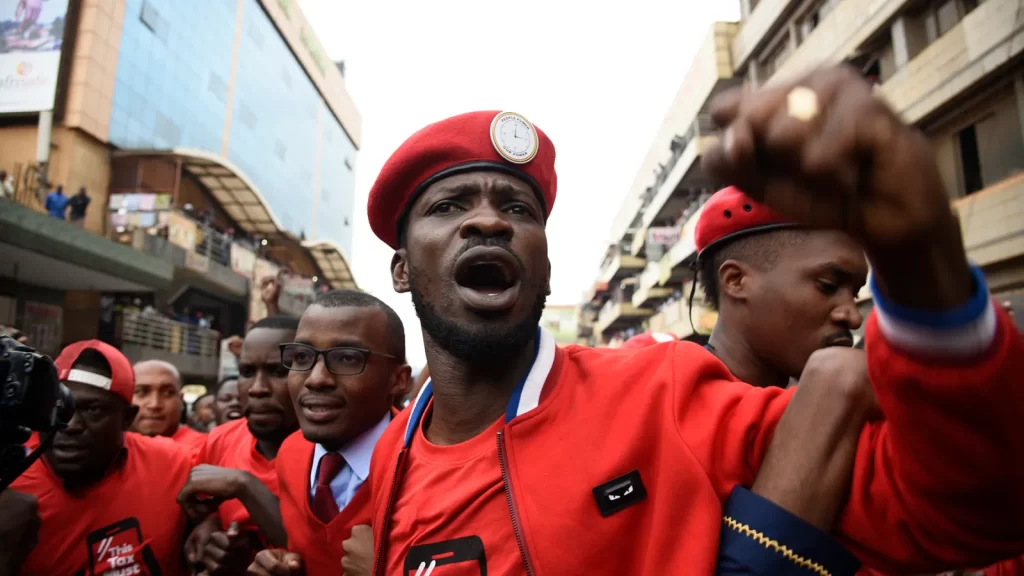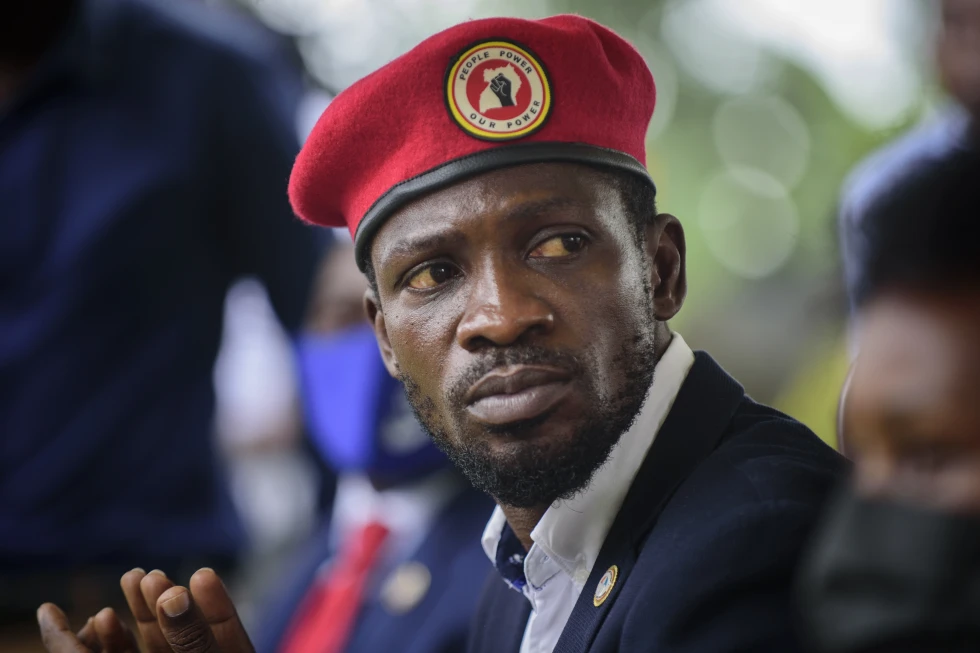In a startling escalation of political tensions in Uganda, prominent opposition figure Bobi Wine was shot and wounded during a confrontation with police on Tuesday. The incident occurred just outside the capital city of Kampala, marking a significant moment in the ongoing struggle between the government and opposition forces in the East African nation.

Bobi Wine, whose real name is Kyagulanyi Ssentamu, leads the National Unity Platform, currently the largest opposition party in Uganda’s national assembly. The party took to social media platform X (formerly Twitter) to report the incident, stating that Ugandan security operatives had “made an attempt on the life of” Wine. According to the party’s statement, he was “shot in the leg and seriously injured in Bulindo, Wakiso District,” a town on the outskirts of Kampala.
Eyewitness accounts and photos shared online depicted a chaotic scene, with Wine surrounded by supporters who urgently called attention to his injury before helping him into a waiting vehicle. This marks the first time Wine has been wounded in such a manner, although confrontations between him and the police have frequently turned violent in the past.
As of the time of reporting, there has been no official comment from the police or other government authorities regarding the incident.

The shooting of Bobi Wine adds another chapter to his tumultuous political career. Rising to prominence first as a popular entertainer, Wine transitioned into politics by winning a seat in the national assembly in 2017. His popularity, especially among urban youth, propelled him to run for president in 2021. Although he lost to incumbent President Yoweri Museveni, Wine contested the results, claiming the election was rigged against him.
This latest incident underscores the ongoing political tensions in Uganda, where President Museveni has held power since 1986. At 79 years old, Museveni has resisted calls to announce his retirement and had the constitution amended to remove the age limit for presidents. His long tenure and the lack of a clear succession plan have been points of contention in Ugandan politics.
Museveni, who has been a key U.S. ally on regional security matters for many years, leads a country that has not experienced a peaceful transfer of power since gaining independence from Britain in 1962. This historical context adds weight to the significance of opposition figures like Bobi Wine and the challenges they face.



